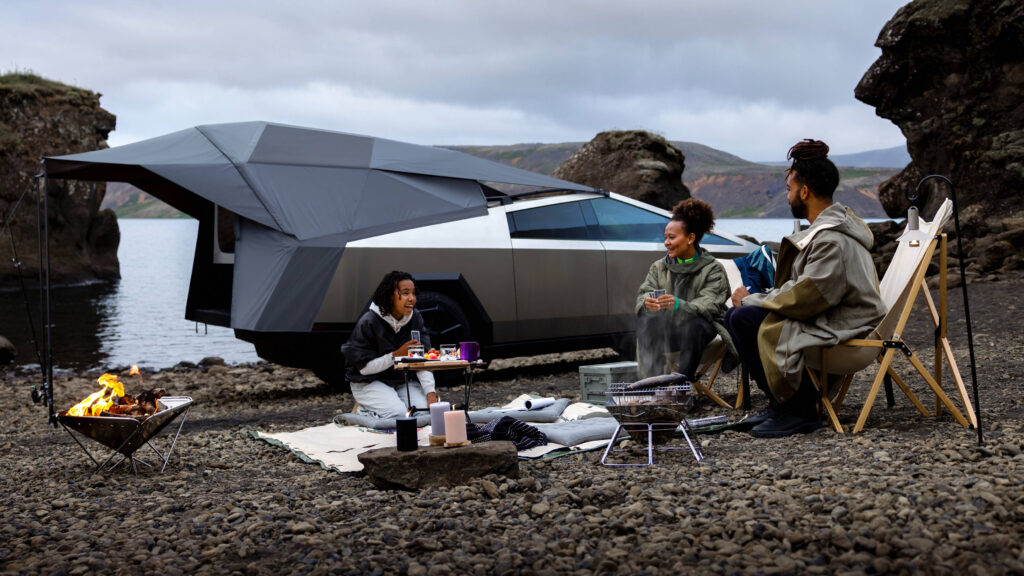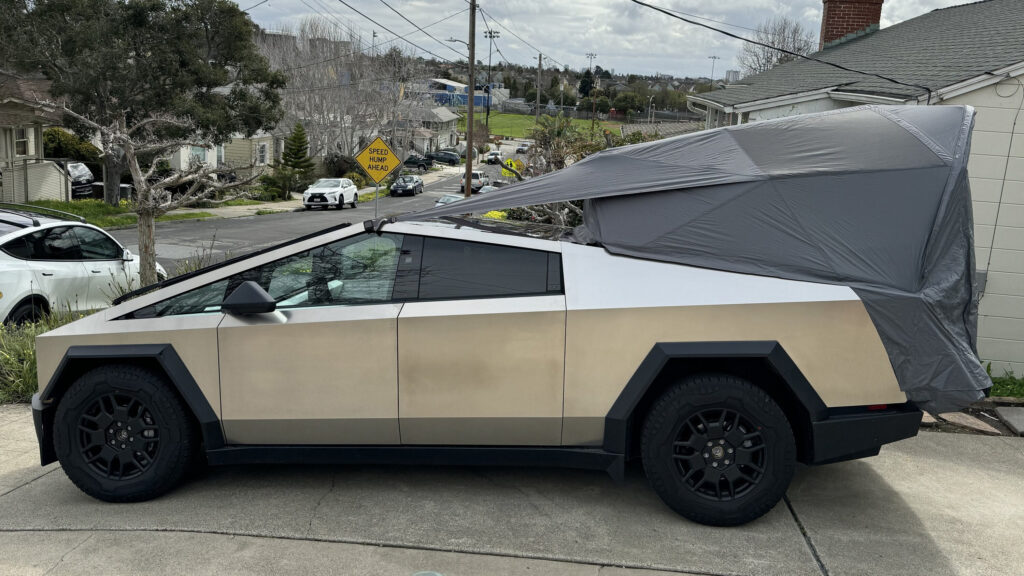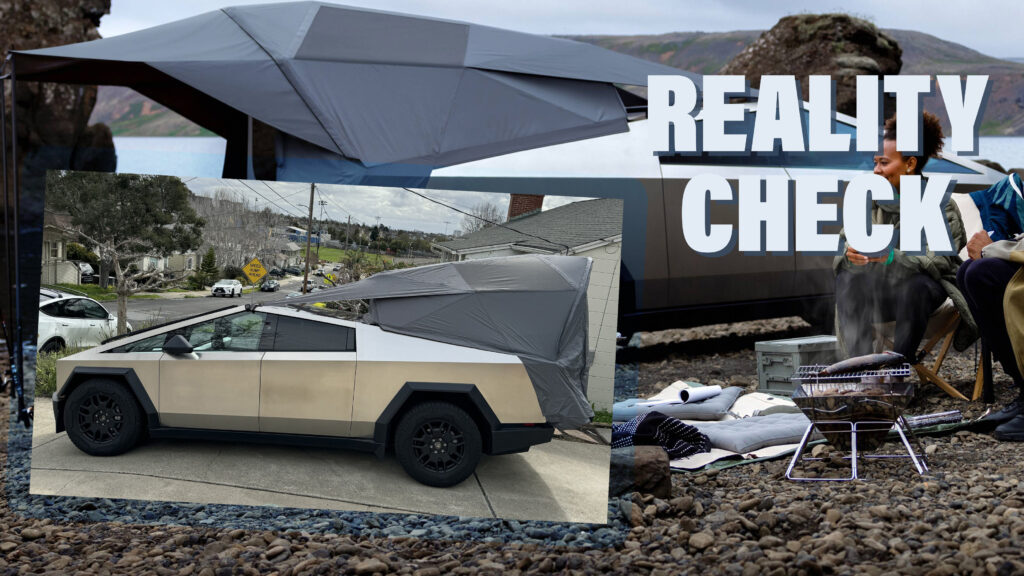The unique shape of the Tesla Cybertruck is undoubtedly one of its major selling points, but it also presents a challenge when it comes to designing accessories tailored to its unique design. In response to this, the automaker pledged to offer certain accessories themselves, such as the Basecamp tent. However, it appears that at least one of the initial recipients of the $3,000 camping add-on aren’t exactly thrilled about it.
One of the first owners to receive the tent detailed their experience, and the initial letdown starts with its appearance. Despite the typical idealized nature of design renders, the Basecamp tent bears little resemblance to what Tesla showcased when unveiling the Cybertruck in 2019. Of course, few expected it would, and to be fair, the Basecamp tent shown in the promotional material of the production Cybertruck is reflective of the final product.
However, let’s just say it looks a little janky. Now, reality is always less appealing than an artist’s rendering or an image photoshopped to absolute perfection, and Tesla is far from the only company in the world guilty of this. But if you had just paid $3,000 for the accessory, you could be forgiven for being disappointed by its sagging sides and wrinkly fabric.
Read: The Tesla Cybertruck’s Windshield Is Bulletproof, But Not Idiot-Proof



While it’s difficult to argue that aesthetics aren’t important to the Cybertruck, all can be forgiven if the tent works well. According to a Cybertruck owner who goes by the name “TownBiz” on the Cybertruck Owners Club and reviewed the tent, it does function, but there are some doubts about its effectiveness.
The owner reports that the initial installation of the tent had to be handled by a Service Center technician to attach the brackets that support the base of the tent and connect to the side rails. Once that is accomplished, owners should be able to set up and take down the tent themselves, in a process that is simple, but not necessarily easy.
“My biggest issue with setup is the very first step, which is removing the [Cybertruck]’s “Aeroflap” (long metal piece right between the can and the bed),” wrote TownBiz. “It’s tricky because you are blindly reaching the two T30 bolts that keep it in place and if you drop those bolts into the abyss below (likely falling into the area that the tonneau retracts into), bad things may happen and you will probably need to visit the [Service Center].”
That process does become easier with time, and once it’s complete, the Basecamp tent is no more challenging to put up than a tent on the ground. Once erected, TownBiz reports that the materials feel like they’re well-made.
That said, the owner couldn’t locate the Tent Mode feature, which is supposed to utilize the adjustable suspension to level the truck out. Without it, the experience of lying down on a “gently sloped driveway” feels more like “rolling downhill,” according to TownBiz.
Taking the tent down is a similar experience to putting it up. While getting the tent back into its cover is frustrating, I wouldn’t describe that as an unusual experience on the campground. However, TownBiz reports that the nylon webbing straps broke while they were tightening the tent cover after very limited use.
While some of these annoyances and disappointments were probably predictable, TownBiz concludes that they aren’t sure if they recommend the product.
“I absolutely love my [Cybertruck] and wouldn’t hesitate to recommend it, but the jury is still out on the Basecamp because I’m not yet convinced that the brilliant elements outweigh the areas that need improvement,” the owner wrote.
Tesla Cybertruck “basecamp” attachment
— Elai (@elaifresh) March 7, 2024
How it started vs how it’s going:
It costs three thousand dollars and the instructions tell you to activate “Tent Mode”, which does not exist in the car pic.twitter.com/h0eNwZD9uu




